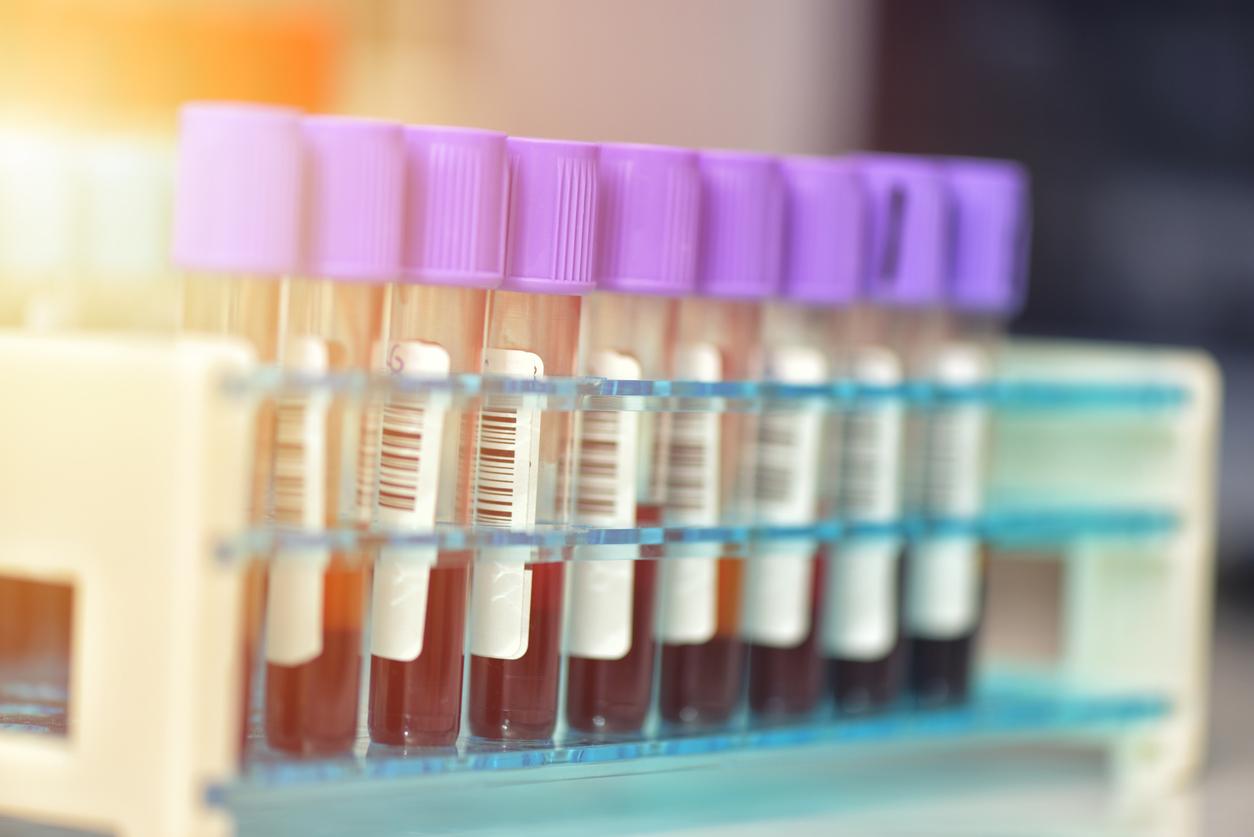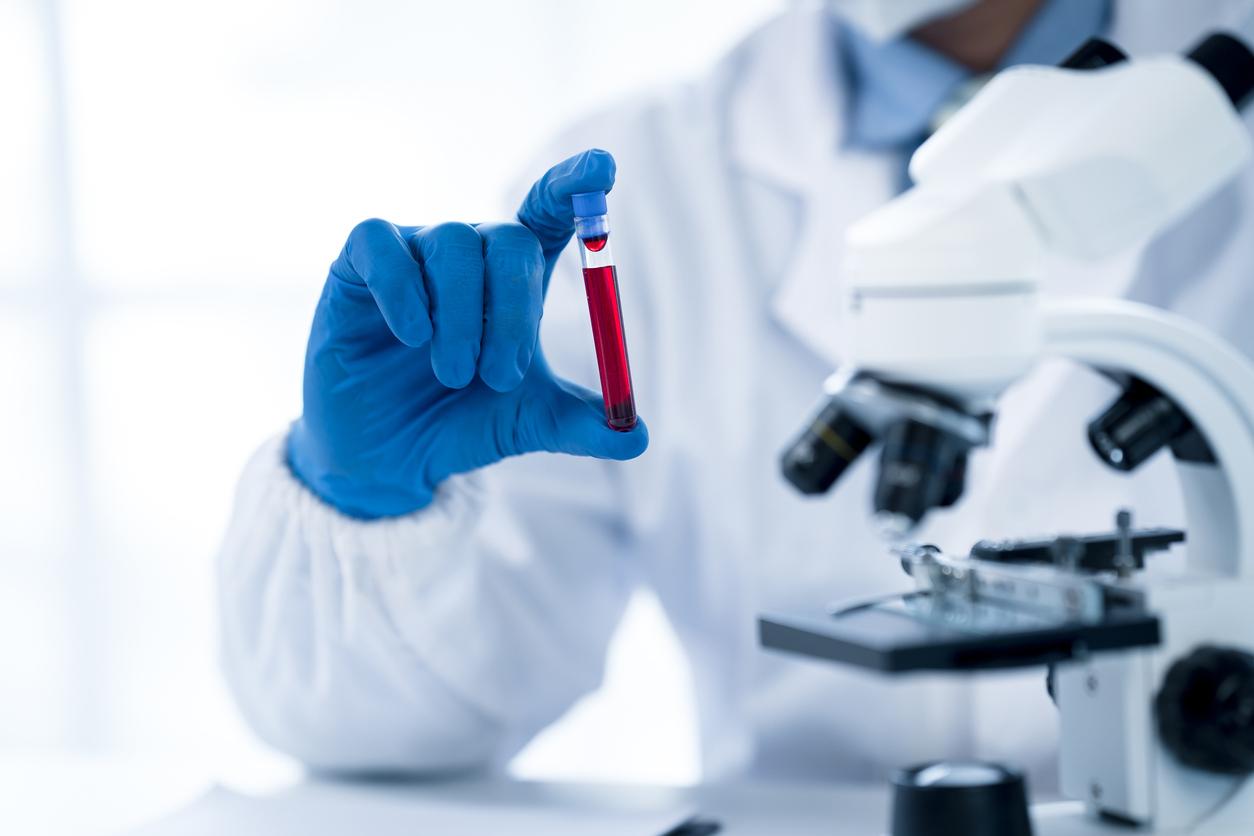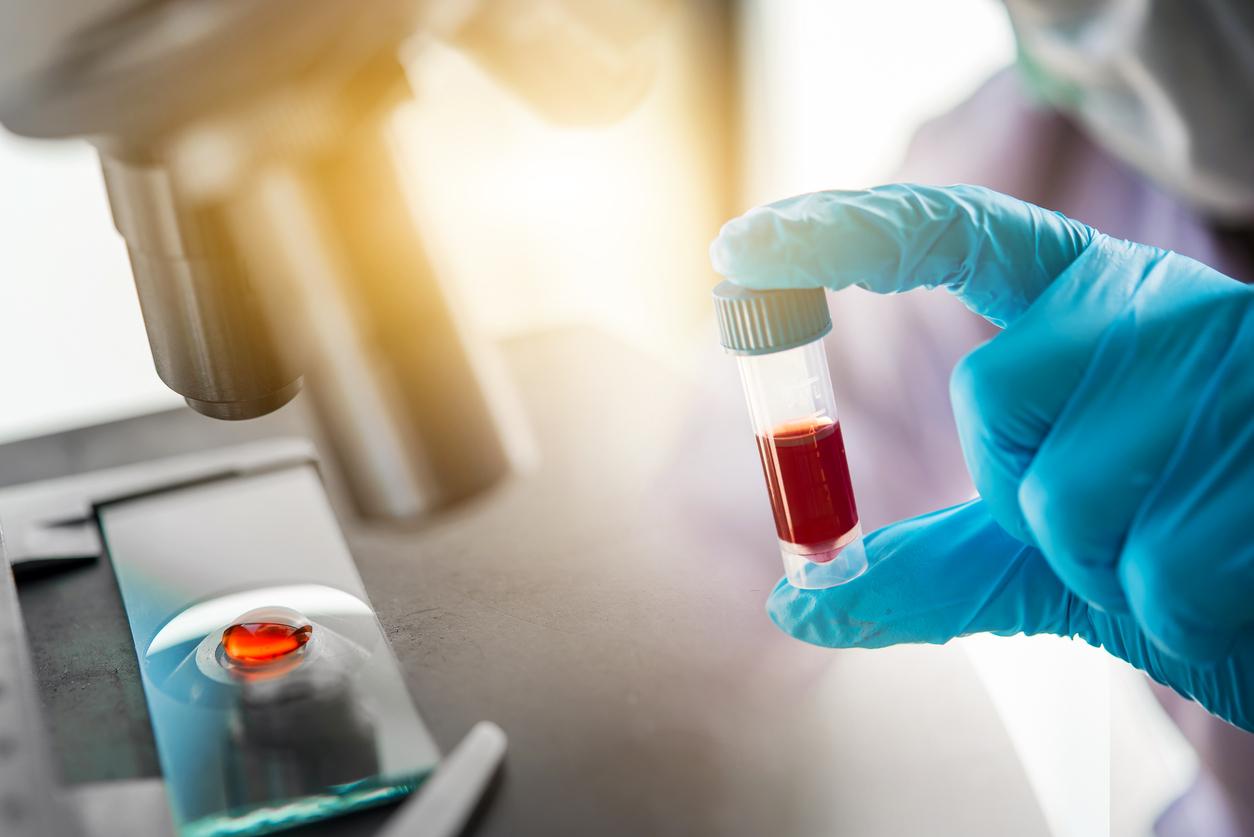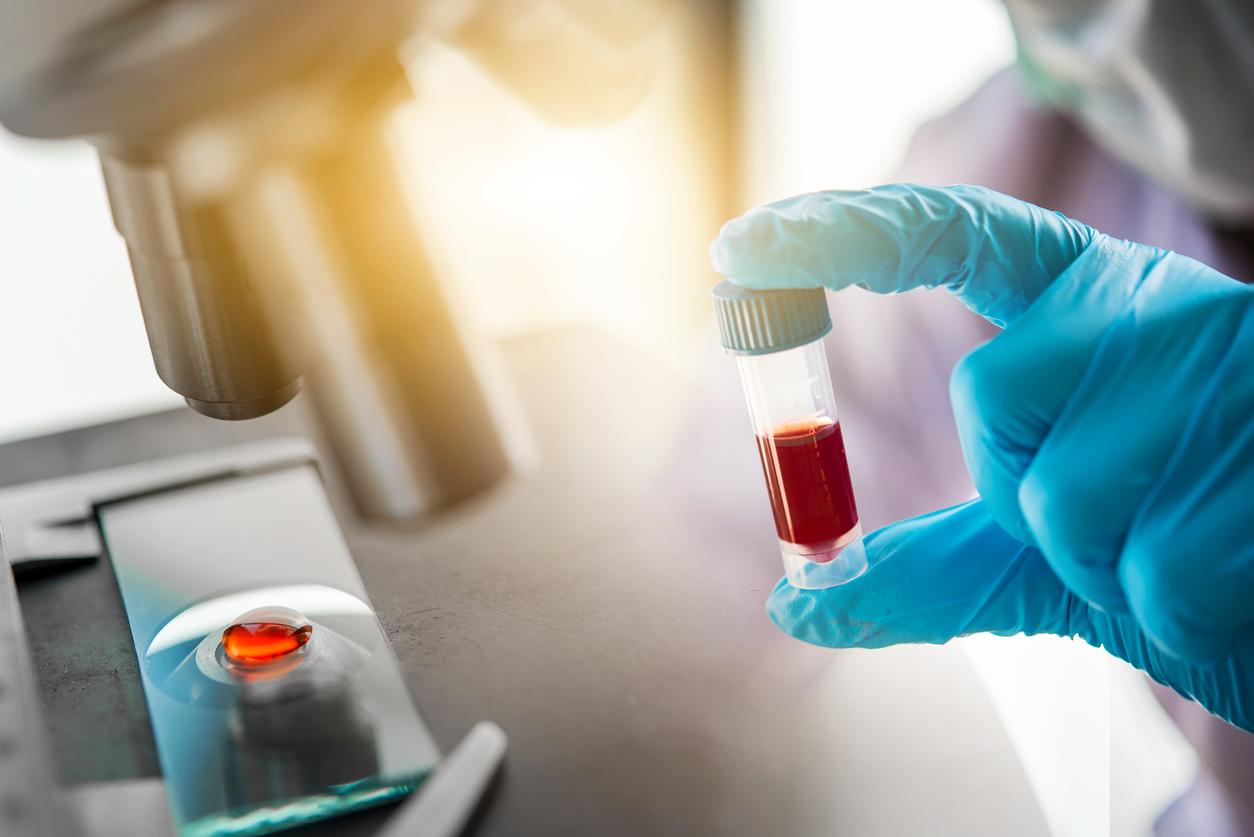Non-invasive trisomy 21 screening tests could be used to analyze the mother’s circulating DNA in order to detect cancer early.

Trisomy 21 blood test could spot early tumors in pregnant women, reveals study published in early June in JAMA Oncology. It was while seeking to increase the precision of the test that Belgian researchers discovered, by chance, these new capacities.
Initially, scientists wanted to improve the detection of fetal chromosomal abnormalities. To do this, they refined the techniques and studied all the DNA circulating in the blood of future mothers. So they collected DNA from the fetus and the mother.
Three cancers detected
In total, they analyzed more than 4000 blood samples, and detected 3 different abnormalities not associated with trisomies (Down, Edward or Patau syndrome), and carried by DNA fragments of maternal origin. “We realized that these genetic modifications resembled those found in cancer, and we transferred these women to the cancer department,” says Nathalie Brison, researcher at the Center for Human Genetics at the University of Louvain.
Additional examinations (MRI scan and further genetic analyzes) then revealed that the 3 future mothers had 3 different cancers at advanced stages: ovarian carcinoma, follicular lymphoma and Hodgkin lymphoma. Tumors that would not have been detected early if these women had not participated in this study. Two of them also benefited from chemotherapy.
Early detection
“Given the poor prognosis of some cancers when they are detected late, and that we know that it is possible and safe to treat cancer during pregnancy, the non-invasive prenatal test presents an important advantage”, comments Pr Joris Vermeesch, head of the cytogenetics and genetic research laboratory in Louvain.
Especially that “pregnancy can hide the symptoms of cancer; fatigue, nausea, abdominal pain or bleeding can be easily interpreted as normal manifestations of pregnancy, ”he adds.
The authors believe that this screening test could allow the detection of cancers before the onset of symptoms. A further argument in favor of tests detecting circulating tumor DNA for early detection.

.

















